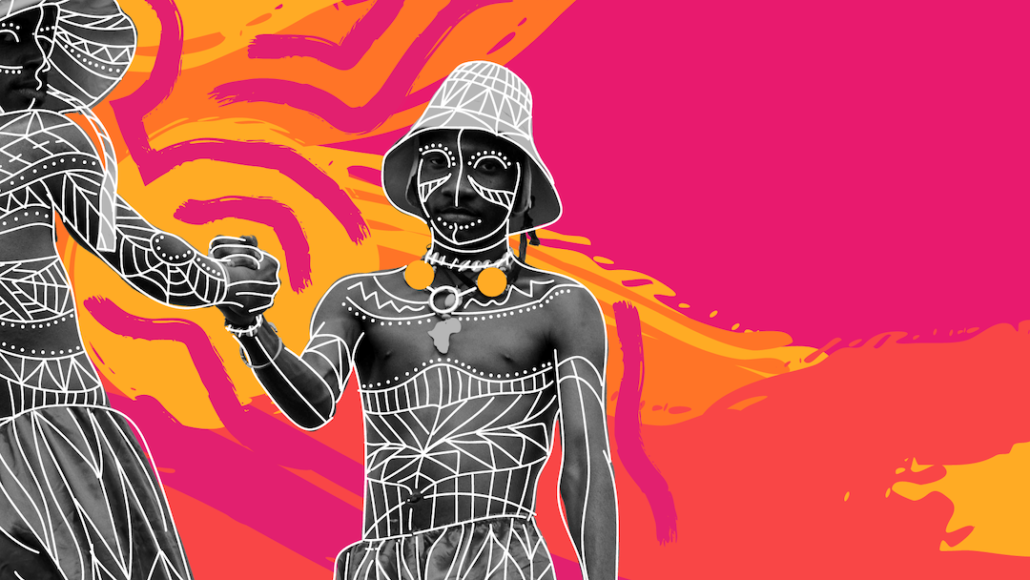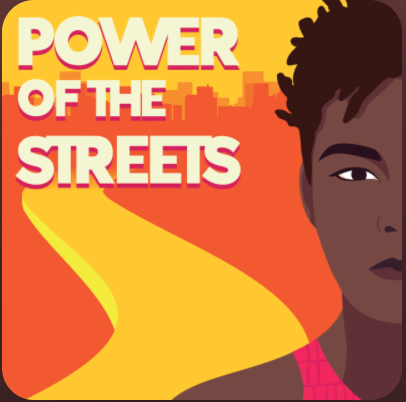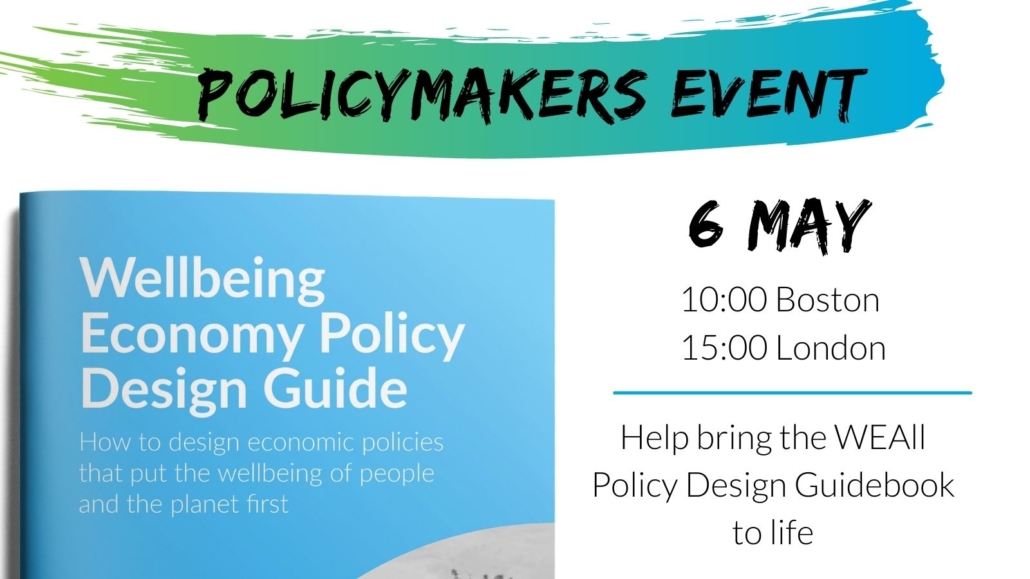This website uses cookies so that we can provide you with the best user experience possible. Cookie information is stored in your browser and performs functions such as recognising you when you return to our website and helping our team to understand which sections of the website you find most interesting and useful.
As part of our work to amplify the important work in the Wellbeing Economy movement, these WEAll Weekly Update blogs will share some of the latest and greatest updates from our membership and beyond. Please use the comment box to share any relevant updates from this week and keep the conversation going!
Weekly Reads

Pathways out of Capitalism: Building Forward, New and Radical
“Anti-capitalist organising must be rooted in a commitment to see the world for what it is but at the same time push forward with unrelenting hope that another world, a better one, is possible.”
Better Business Act
“We’re joining the coalition because we believe that now is the right time to raise the bar for British business across the board, it’s time for broader accountability to be a legal requirement for the many, not just a moral imperative for the few.” – Arlo Brady, Freuds
The Principles of Environmental Justice
“Environmental Justice demands that public policy be based on mutual respect and justice for all peoples, free from any form of discrimination or bias.”
Community Currencies as Crisis Response: Results from a Randomized Control Trial in Kenya
“This paper presents the results of what may be the world’s first randomized control trial on community currencies. In 2020, Grassroots Economics’ Community Inclusion Currency (CIC) model was adopted by the Kenya Red Cross as a humanitarian response to the Covid-19 pandemic.”
The Wellbeing Transition – Eloi Laurent
“The purpose is to advance the understanding and undertaking of the well-being transition away from growth and toward resilience and sustainability, at a time when this progress has become a vital necessity”
Inclusive and sustainable economies: leaving no one behind (executive summary)
“There is a social gradient in health: the lower an individual’s socioeconomic position, as defined by their job, qualifications, income, wealth, and where they live, the worse their health. It has been estimated that, between 1 January 2003 and 31 December 2018, over a third of deaths in England were attributable to socioeconomic inequality. Such avoidable inequalities are unjust, and there is both a moral and economic argument for acting at scale to reduce health inequalities.”
Good Lives for All in Greater Manchester
Nothing we describe in this vision for the city-region is impractical or unachievable. Good things might be already happening somewhere, but they need to be happening everywhere.
The Green Central Banking Scorecard – Positive Money
“While some institutions have taken concrete action to assess environmental risks and incentivise green investments, all are shying away from policies that disincentivise or restrict financial flows to environmentally harmful activities.”
OECD: Beyond Growth
“At the core of the report is recognition of the sociality of human beings and their embeddedness in social instituions, an idea with profound implications for our understandings of both economic theory and policy.”
Careless Finance—Operational and economic fragility in adult social care
Adult social care across the OECD is in crisis. Covid-19 has exposed deep fragilities which have combined to place unprecedented strain on social care organisations. Principal amongst these is the process of marketisation and financialisation of the social care sector. In this paper, we take a critical perspective on this process
DAWN Informs on PPPs
Together they compose a panorama of the state of PPPs today, filled with analysis and critique, looking at effects and consequences to women’s lives and communities’ wellbeing, all in the name of so-called development.
Why systems change requires shadow work
I argue that for us to move forward and truly create root and branch change, we each of us have to do the dirty work, and acknowledge all the things denied about ourselves and our cultures. So, allow me to be the first to hold up my hand and own my culture’s stuff
WEAll Policy Design Guidebook
“This guide has been co-created by the Wellbeing Economy Alliance (WEAll) to support visionary policy makers, to build more just and sustainable economies for people and planet.”
Being Bold: Building Budgets for Children’s Wellbeing – Dr. Katherine Trebeck
“The report argues that the Scottish Government’s stated aims of improving wellbeing across society and addressing the fact that one quarter of children live in relative poverty cannot be met unless we create conditions for our youngest children to be healthy and supported from the outset.”
Chasing Carbon Markets: The Deception of Carbon Markets and “Net Zero”
“Net zero” is a smokescreen, a conveniently invented concept that is both dangerous and problematic because of how effectively it hides inaction. We have to unpack “net zero” strategies and pledges to see which are real and which are fake. Fake zero strategies rely on offsets, rather than real emission reductions. Real zero strategies require emissions to really go to zero, or as close to zero as possible
Job Openings & Opportunities
- WEAll COP26 Communications Officer – WEAll
- Professor of Wellbeing Economy – University of Glasgow
- Editorial assistant – Open Democracy
- 2021 Photographic Challenge – Systems Change Alliance
- Associate Academic Officer — Sustainable and Equitable Post-Covid Recovery – United Nations Univeristy
- International Finance Holder – Dark Matter Labs
- International Ops, Projects & Finance Synergist – Dark Matter Labs
- Communications Manager Or Senior Communications Manager – EcoAgriculture Partners
- What’s your vision for the future? – Submit your story!
- Research Fellow & for Grade 8 – University of Birmingham
- Remade Network – Various Positions
What to Watch
- Hunger for Justice S2 E2: Rich Earth, Red Earth & The Fight For Land Justice in the Phillippines via Possible Futures
- Woman Power Conference with WEAll Ambassador Liepollo
- WEAll Policy Design Guide Launch Event Recording
- Webinar: Lifestyle change & system change are two sides of the same coin – UNEP EGR
- TEDxGRC Possible Futures | Panel 3: PLURIVERSALITY & REGENERATION
- The Economy of Wellbeing: A New Holistic Approach to achieve the Agenda 2030 goals
- WEAll Talk: Exploring the intersection of biological and socioeconomic issues in the time of Covid-19 – Liepollo Lebohang Pheko
- Peter Victor: Slower by design not disaster. managing without growth
Listen Up

- Power of the Streets
- Robin Wall Kimmerer in Conversation with Robert Macfarlane
- Banco Interamericano de Desarrollo
- Decolonising Design Thinking– The Conversation Factory
- Health, justice and the environment – the core issues– FEASTA
Upcoming Events

- May 6: WEAll Policymakers Event
- April 13: Promoting Economic Pluralism Coffee Club
- April 13: Improved Business Purchasing Practices as a way to Address Human Rights – What Role For EU policies?
- April 14: Banking on the community, investing locally for resilience
- April 21: WEAll Policy Design Guidebook: Overview Event @ 10:00 Boston
- April 21: WEAll Policy Design Guidebook: Overview Event @ 17:00 Boston
- April 27 & 28: SEWF 2021
- May 17- 21: #ClimateExp0 Conference
- May 19 & 20: Impact Summit – FutureX
- Next Economy MBA “Meet the Instructors” – LIFT Economy
- Regeneration Pollination “Speed Networking” Events – the Global Regeneration CoLab
WEAll Originals
Blogs:
- Policies for Economic Revolution: Some Ideas from the Womxn of 36×36
- Event Recap: WEAll Policy Design Guide launch
- Meet Jimmy Paul: WEAll Scotland’s New Director
- Love you: Public policy for intergenerational wellbeing
- Visions of a Wellbeing Economy: Tanzania
- Recruiting now: WEAll COP26 Communications Officer
- New report calls for radical budget redesign to deliver children’s wellbeing
- The environmental impacts of corporate advertising
- Recruiting now: WEAll COP26 Communications Officer
- Designing Policies for a Wellbeing Economy
- SURVEY: Business and the wellbeing economy
- Stories for Life
Publications:
- Children’s Wellbeing Budget by Dr. Katherine Trebeck
- WEAll Policy Design Guidebook
- Stories For Life
- Wellbeing Economy Messaging Guide– Positive Money, PIRC, NEON, and WEAll
- Measuring Wellbeing, Rutger Hoekstra
- Business in the Wellbeing Economy, Olga Koretskaya & Gus Grosenbaugh
From the Archives
the discussion?
Let us know what
you would like
to write about!

